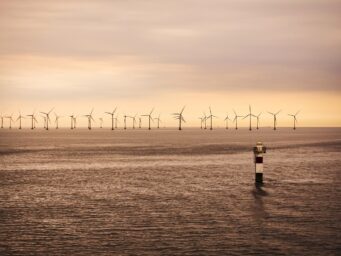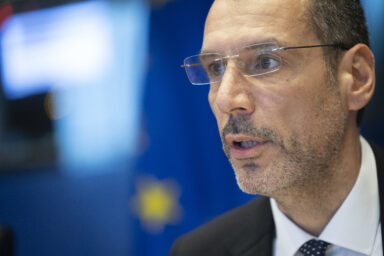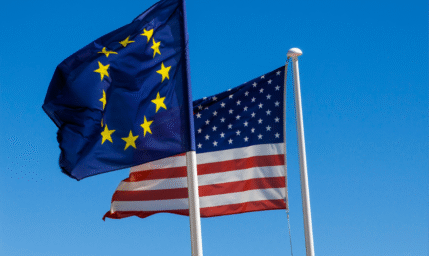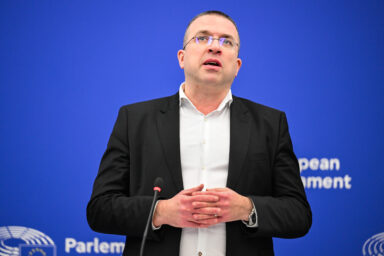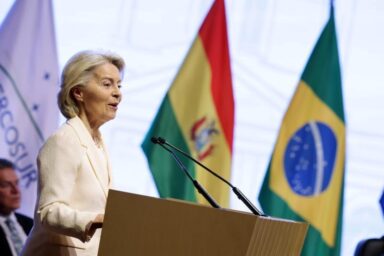A global climate-focused group of top banks is at risk of losing key European members. The lenders refuse to commit to remaining in the group even as the Net-Zero Banking Alliance has relaxed membership requirements.
Just as Danish climate minister Lars Aagaard spoke in Brussels, extolling the virtues of his country’s EU Council presidency and flaunting its climate credentials, Financial Times brought news going in the opposite direction. Two major financial instututions, Britain’s Barclays and Switzerland’s UBS, are about to rescind their membership in the Net-Zero Banking Alliance.
In a move sobering to those hoping for Europe’s unequivocally green future, the banks refused to commit to the alliance. Instead, they joining HSBC and a number of US financial institutions on their way out. It pours cold water on the global goal to limit global warming to 1.5C above pre-industrial levels.
Barlays, UBS sitting on the fence
On Tuesday, Mr Aagaard spoke to European parliamentarians about the urgency of the global effort to bring down emission levels. The global nature of the endeavour appears in jeopardy.
Barclays, which joined in 2021, declined to confirm its membership plans to the Net-Zero Banking Alliance’s leadership in recent days. According to FT sources, any decision on membership is yet to materialise. UBS said it would carefully consider how the group climate rules aligned with its strategy.
You might be interested
Neither of the said banks resides inside the European Union and over 80 alliance member institutions are European. More defections, however. Spain’s Santander declined to comment on the plans on its membership, even as a source told FT that the bank’s net zero commitments were unchanged.
The incredible shrinking assets
The development may appear rather surprising as the Net-Zero Banking Alliance members voted in April to ditch a pledge to align their assets with the 2015 Paris Agreement to limit global warming to 1.5C above pre-industrial levels. The group also no longer requires members to aim to hit net zero by 2050, following threats by European banks to withdraw.
The alliance’s membership has dwindled as its combined assets have fallen from $74tn at the start of December to $44tn on Tuesday. It has struggled to retain some of its big members despite the softening of climate rules. The list of defectors includes top-notch global institutions such as JPMorgan Chase, Bank of America, and Nomura.
The alliance membership woes exeplify the shift in attitudes towards environmental, social and governance initiatives. The intensity of global climate activism has dropped markedly since Donald Trump‘s return to the White House.

